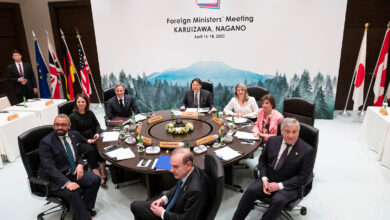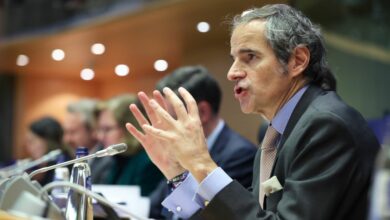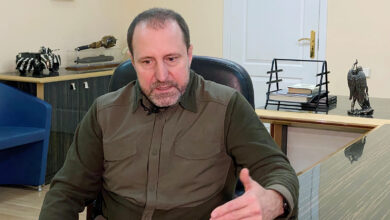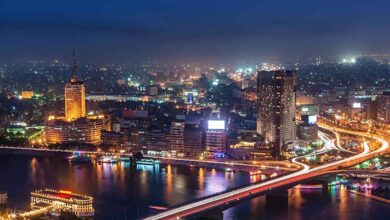
US Secretary of State John Kerry held a rare meeting with his Iranian counterpart Sunday to discuss the next steps in resolving Western fears over Iran's contested nuclear programme.
World powers are due to hold another round of talks with Iran on February 18 after reaching an initial accord in November to curb the nuclear activities and open up them up so as to allay Western concerns Tehran is seeking nuclear weapons.
Kerry and Iran's Mohammad Javad Zarif "discussed the upcoming negotiations with the P5+1 and the EU on a comprehensive agreement that will begin in Vienna next month," a senior US State Department official said.
"Kerry reiterated the importance of both sides negotiating in good faith and Iran abiding by its commitments under the Joint Plan of Action (agreed in November)," said the official.
"He also made clear that the United States will continue to enforce existing sanctions," he added.
The official said Kerry also pressed Zarif to "work cooperatively with us" to help detained US citizens Robert Levinson, Amir Hekmati and Saeed Abedini return home.
Further details of the meeting were not immediately available.
Tehran has always insisted that its nuclear programme is for peaceful ends only. But the West, unconvinced and worried by signs of possible atomic weapons development, has imposed ever tighter sanctions hoping to stop Iran getting to a 'break-out' point.
In November, Iran agreed with the five permanent members of the UN Security Council — Britain, China, France, Russia and the United States — plus Germany that it would roll back the programme and open it up to wider inspections.
In return, the world powers agreed to partially lift tough sanctions that have caused immense damage to the Iranian economy.
EU foreign affairs chief Catherine Ashton, who has led the international nuclear talks with Iran, said Friday she had had a "really interesting" meeting with Zarif on the sidelines of the Munich Security Conference.
"I very much look forward to working together with you then," she said of the planned talks in Vienna.
Iran receives first tranche of unfrozen funds
Last month, the United Nations nuclear watchdog, the IAEA, certified that Tehran had stuck to its side of the November deal, giving access to key nuclear installations and cutting back its enriched uranium stockpile.
Accordingly, the European Union and the United States began lifting some sanctions on January 20, laying the groundwork for the next, six-month stage of the negotiating process.
During this period, the United States and the EU have promised to impose no new sanctions but have also made clear that most of them will remain in force pending further progress.
The accord provides ultimately for removing all the sanctions if Iran lives up to all its commitments and the Western powers conclude it will not be able to acquire nuclear weapons.
Iran announced Saturday that it had received the first instalment of $4.2 billion to be unfrozen from foreign accounts under Western sanctions, as agreed in November.
"The first tranche of $500 million was deposited in a Swiss bank account and everything was done in accordance with the agreement," Deputy Foreign Minister Abbas Araqchi told the ISNA news agency.
Also on Saturday, the official IRNA news agency reported that Iran will soon receive much-needed spare parts for its civilian air fleet, again made available under the November accord.
Zarif is due to appear on a panel later Sunday at the Munich Security Conference, with the nuclear issue the main talking point.




